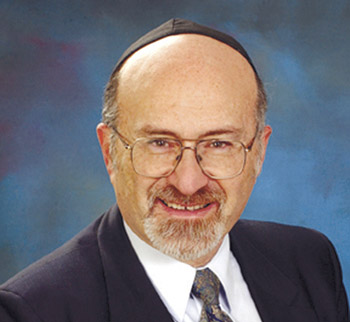TORONTO — It is absurd to think that Jews should not become organ donors, said Rabbi Reuven Bulka, spiritual leader of Congregation Machzikei Hadas in Ottawa.
Board chair of the Trillium Gift of Life Network and board member of Canadian Blood Services, Rabbi Bulka spoke last week at Shaarei Shomayim Congregation at an event sponsored by the synagogue and Beth Haminyan, with the assistance of Trillium Gift of Life.
Also speaking was Dr. Gary Levy, founder and former director of the multi-organ transplant program of the University Health Network. An organ donor and recipient also spoke.
The evening commemorated the first yahrtzeit of Allan Gould, a writer and former CJN columnist, whose family donated his organs after his sudden death from a brain aneurysm.
Rabbi Bulka said there are some excuses as to why people think they should not donate their organs. “The burial will not be instant, but not all burials are. Sometimes people wait for their families to come [to have the funeral]. Delaying a funeral because they are saving someone’s life is a valid reason.”
He said people also think that their loved one must be buried whole. “In an ideal world, they should be buried whole, but if the [part missing] is giving life to another, it is not an issue.”
Saving a life is paramount, he said. “Knowing that, pushes away every other consideration, except taking a life. Saving other people’s lives is a mitzvah, and nothing should stand in the way.”
Organ and tissue donation does have challenges, he said, “but we will get over it. Hopefully rabbis will announce [from the pulpit that they’ve become donors].”
Levy said organ donation is recognized as one of the greatest medical achievements in this and the previous century. “Survival rates at one year are 95 per cent, and in five to 10 years, the survival rate is high.”
In Toronto, he said, 650 organ and tissue transplants are done every year. “Despite our success, though, many people will die because of the shortage of organs. In our hospital there are too many patients waiting for the phone call [that tells them] there is an [organ] available. Last year, more than 150 people who were accepted for a transplant died, because there was no organ.”
Levy said that organ donation rates in this region are extremely low. “We are obviously not getting the message out.”
To help bridge the gap, he said, “we have established a cutting-edge, living donor program, the largest in [the country.]”
In Canada, he said, 40 to 50 per cent of transplants are based on living donors, [but] live donations carry risks. “It is a manifestation of our societal failure to come to grips with becoming organ donors.”
He just returned from Israel, he said, where a law has been passed that says people who sign up to donate their organs, are given first priority if they need an organ themselves.
“We have to question why there is such a malaise to do what is so obviously right.”
To register online go to www.beadonor.ca
